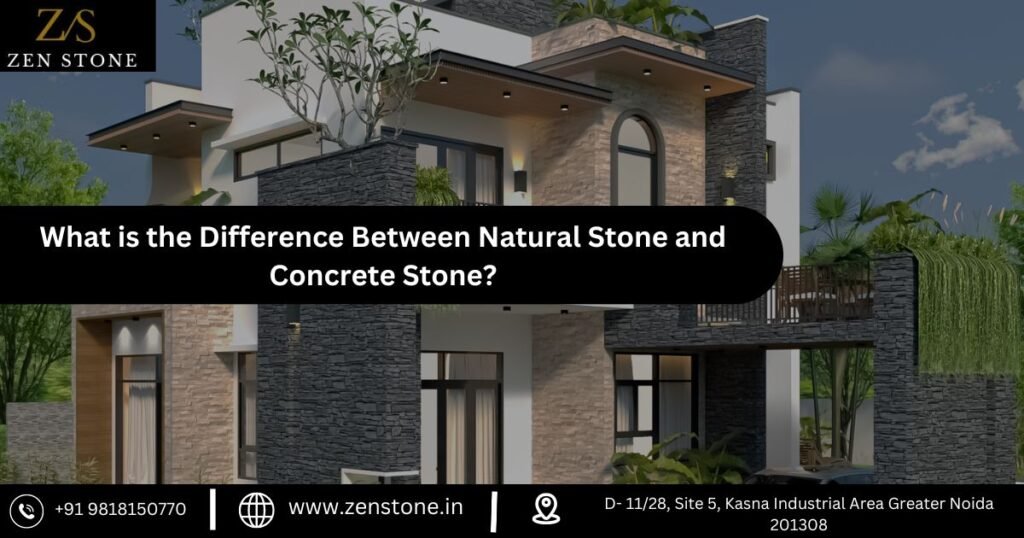What is the Difference Between Natural Stone and Concrete Stone?

When choosing materials for your construction or design project, understanding the differences between natural stone and concrete stone is crucial. At Zen Stone, we are proud to offer a wide range of both natural and artificial stone wall cladding. Here’s a detailed comparison to help you make an informed decision.
Natural Stone
Formation and Composition:
Natural stones are created through natural geological processes over millions of years. Common types include granite, marble, limestone, sandstone, and slate. Each type has unique mineral compositions and characteristics that give it a distinct appearance.
Aesthetic Appeal:
One of the key attractions of natural stone is its unique, non-repetitive patterns and colors. Each piece of stone is unique, adding a touch of natural beauty and luxury to any space.
Durability:
Natural stone is generally very durable and can last a lifetime with proper care. However, its durability varies; for instance, granite is harder and more resistant to scratches than marble.
Porosity and Maintenance:
Natural stones can be porous, which means they might absorb liquids and stains if not properly sealed. Regular maintenance, including sealing, is necessary to keep them in top condition.
Concrete Stone (Engineered Stone)
Formation and Composition:
Concrete stones, or engineered stones, are man-made products. They are typically made from crushed stone bound together with a polymer resin. Types of engineered stones include quartz and other precast concrete stones designed to mimic the look of natural stone.
Aesthetic Flexibility:
Engineered stones can be manufactured to have consistent colors and patterns. This allows for a wide range of design options and a uniform look across large surfaces.
Durability:
Concrete stone is highly durable and often more resistant to stains, scratches, and heat compared to some natural stones. This makes it a practical choice for high-traffic areas like kitchen countertops.
Non-Porosity and Maintenance:
Most engineered stones are non-porous, making them highly resistant to stains and bacteria. They require minimal maintenance compared to natural stone and typically do not need sealing.
Choosing the Right Stone
Application:
- For luxury and a unique look, natural stone is ideal for applications such as high-end countertops, flooring, and wall cladding.
- For practicality, uniformity, and ease of maintenance, engineered stone is perfect for kitchen countertops, bathroom surfaces, and commercial spaces.
Budget:
- Natural stone can be more expensive due to its rarity and the cost of extraction and processing.
- Concrete stone is more cost-effective while offering similar aesthetic qualities.
Conclusion
Zen Stone offers a comprehensive range of natural and engineered stone products to suit any project. Whether you prefer the timeless beauty of natural stone or the versatility and practicality of engineered stone, we have the perfect solution for you. Visit our website to explore our offerings and get in touch with our expert team for personalized advice. Experience the best of both worlds with Zen Stone – your trusted partner in quality stone products.



